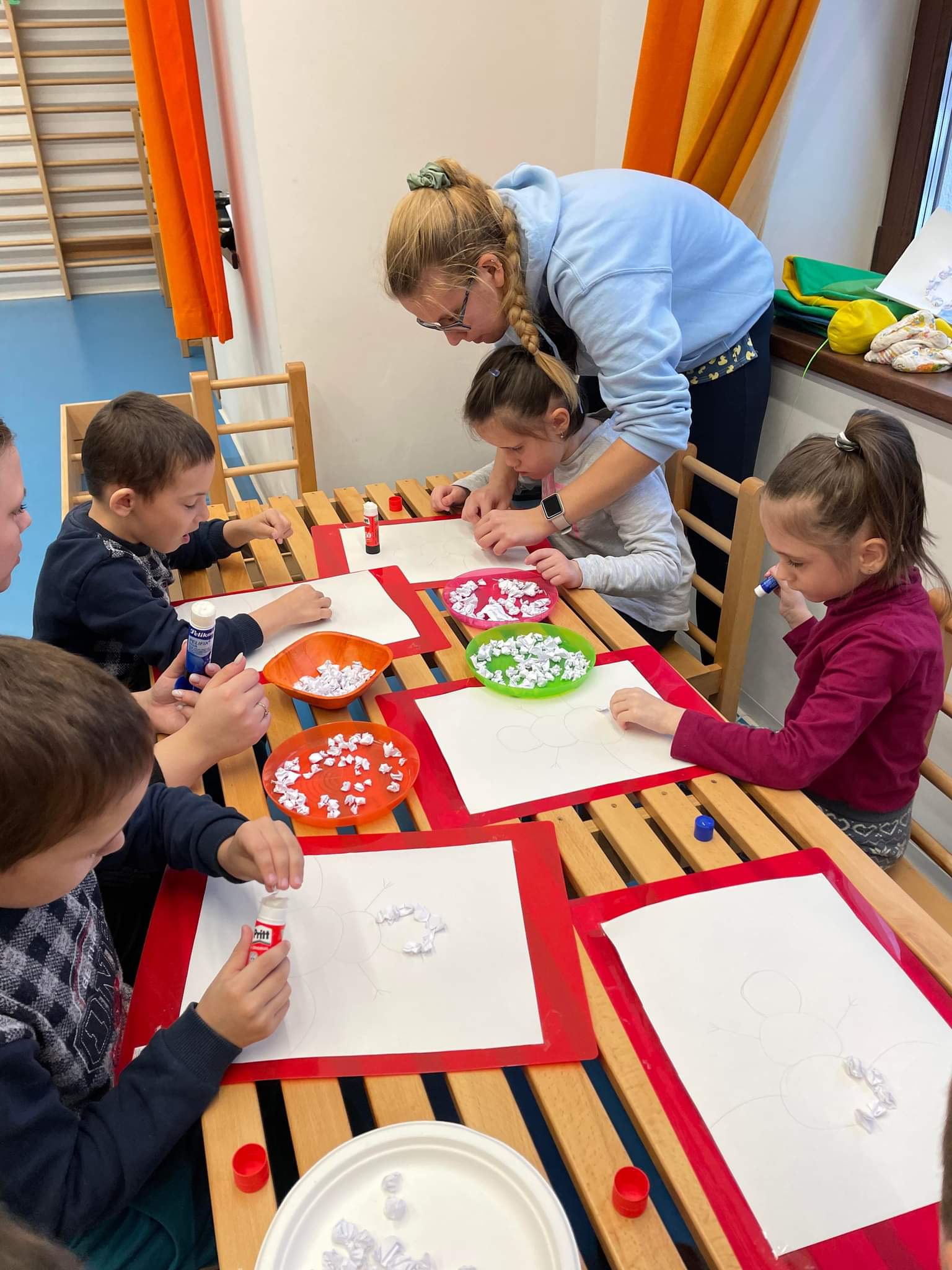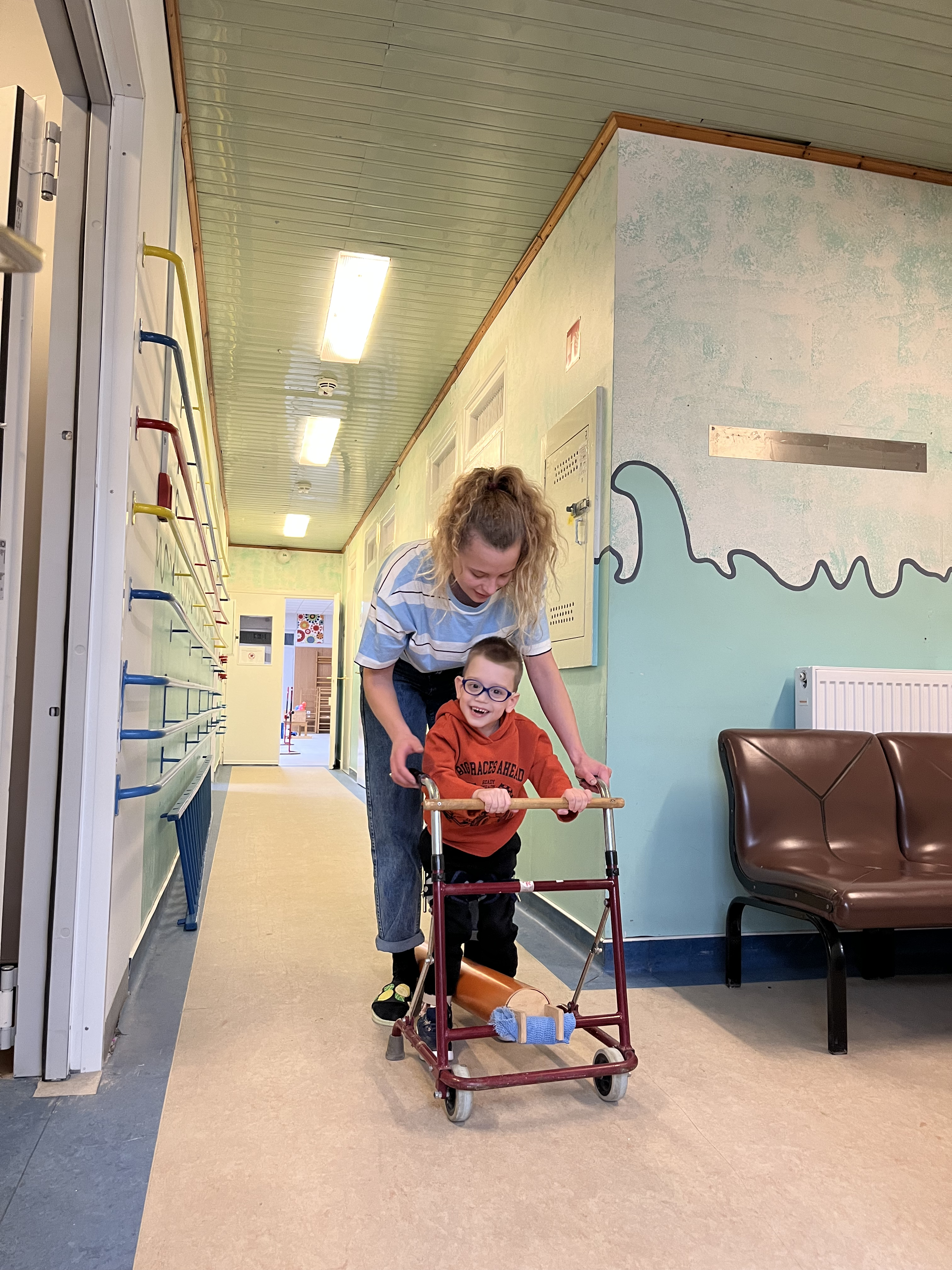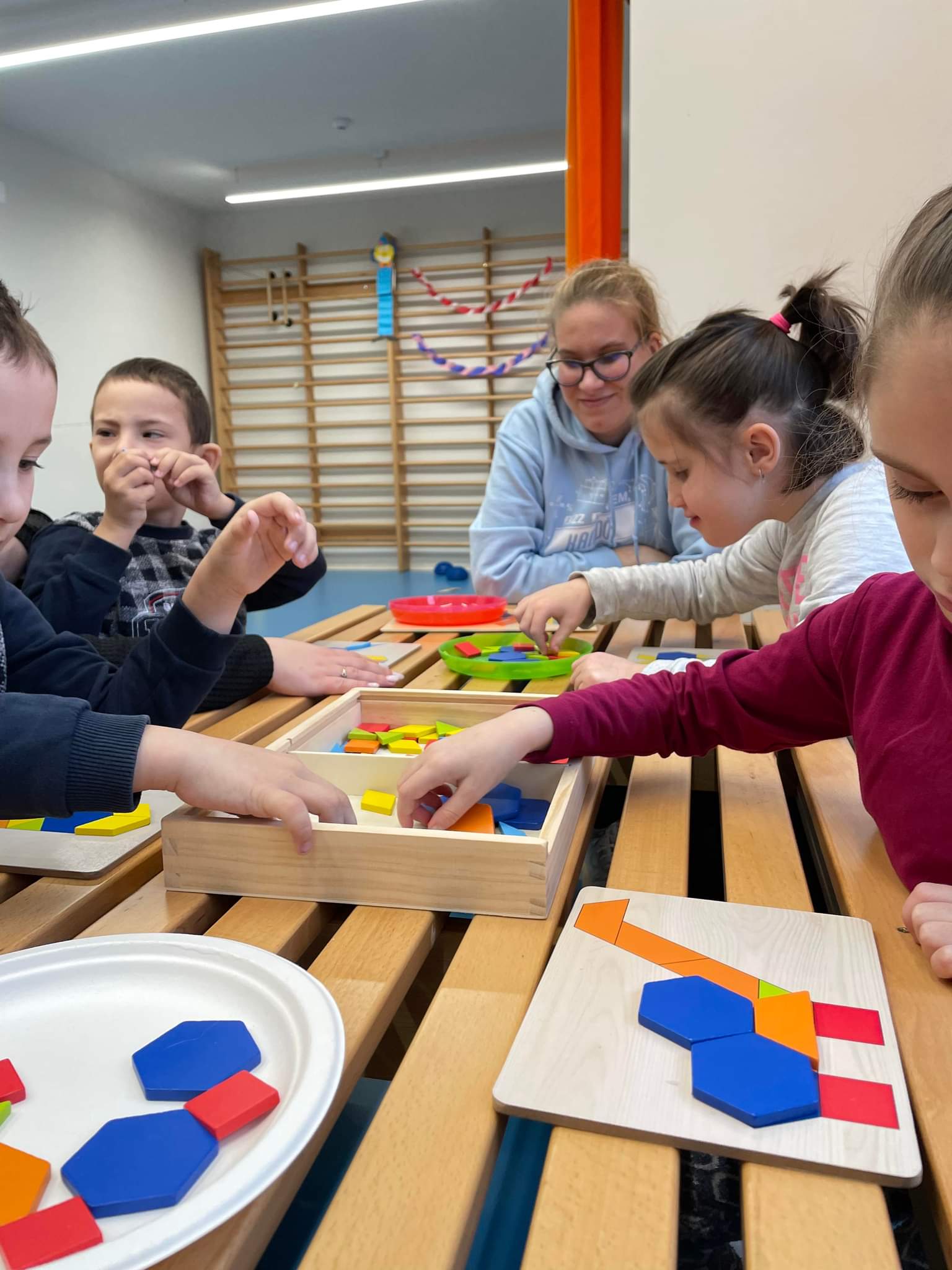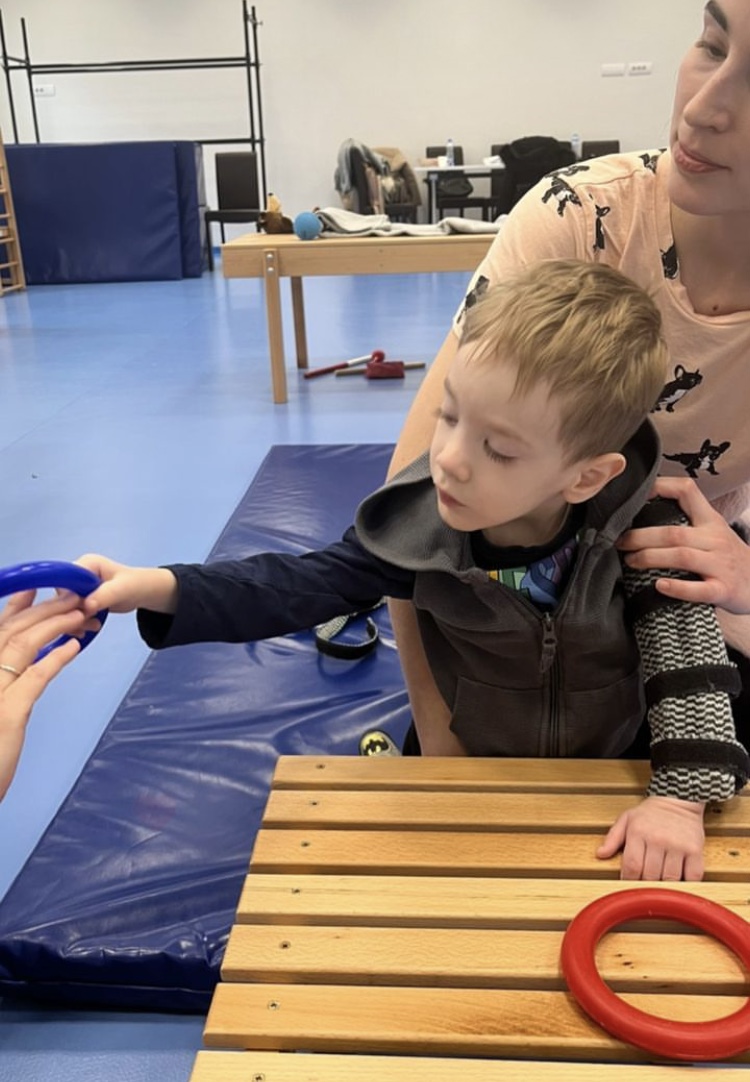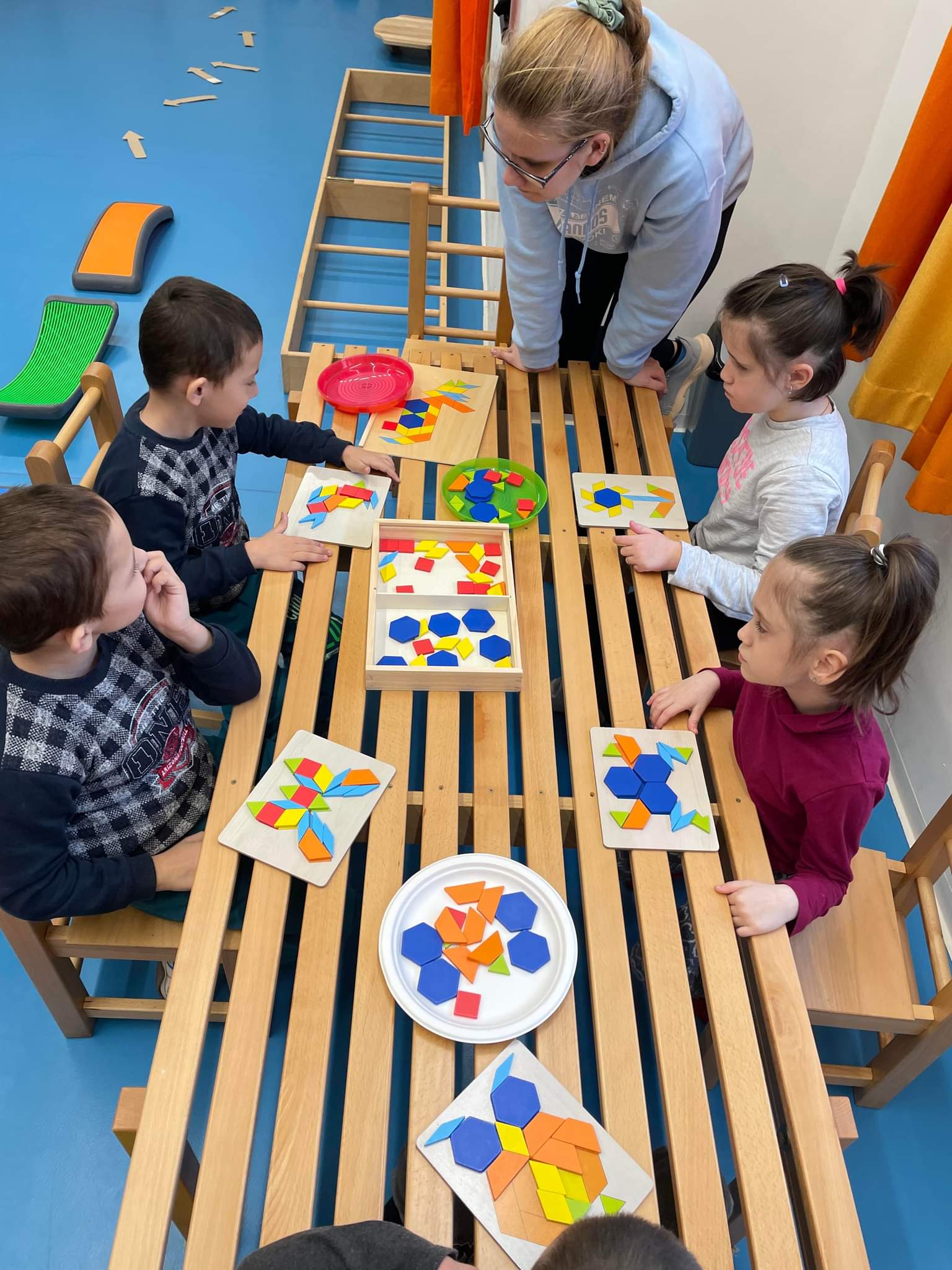Kindergarten (3-8 years old)
A conductive intensive program for kindergarten-aged children with motor disabilities aims to provide a comprehensive and immersive approach to their development. Such programs are typically designed to be intensive, focusing on physical, cognitive, and social aspects of a child’s development.
It offers an opportunity for children to work within a group. The main focus of the program is on improving children’s motor skills as well as everyday life skills such as communication, dressing, toileting, eating, drinking and playing. The program is very complex and made as colorful as possible. There is a lot of emphasis on the senses, on seeing, hearing and on the improvement of concentration. Playful and inspiring sessions are provided to help children acquire information at ease.
Here’s an outline for a conductive intensive program for kindergarten-aged children:
Week 1: Assessment and Orientation
- Initial Assessment: Begin with a thorough assessment of each child’s abilities, including motor skills, communication, cognitive development, and social interaction.
- Orientation: Familiarize the children with the conductive education setting, instructors, and daily routines. Create a welcoming and supportive environment to ease their transition into the program.
- Setting Individual Goals: Work closely with parents and caregivers to establish specific and measurable goals for each child’s development during the program.
- Individualized Plans: Based on the assessments and goals, create individualized development plans for each child. These plans should outline specific activities and strategies to address their unique needs.
Week 2-3: Intensive Conductive Education
- Daily Sessions: Implement daily sessions that are engaging and age-appropriate. Each session should encompass a blend of activities designed to promote mobility, fine motor skills, communication, and social interaction.
- Mobility and Motor Skills: Focus on activities that encourage mobility, balance, coordination, and fine motor skills development. Activities may include crawling, walking, reaching, grasping objects, and using adaptive equipment if necessary.
- Communication Skills: Incorporate speech and communication exercises into daily routines. Encourage both verbal and non-verbal communication with peers and instructors.
Social Interaction: Promote social interaction through group activities, games, shared play, and cooperative tasks. Teach and reinforce basic social skills such as sharing, taking turns, and working together. - Self-care Skills: Depending on each child’s abilities, introduce basic self-care skills such as dressing, eating, and personal hygiene.
Week 4: Progress Evaluation and Transition Planning
- Mid-Program Assessment: Conduct a mid-program assessment to track each child’s progress. Adjust individualized plans as needed to address evolving needs.
- Transition Planning: Collaborate with parents, caregivers, and future educators to create a transition plan for each child. Provide guidance on how to continue supporting their development once they return to their regular kindergarten or educational setting.
- Celebration and Feedback: Celebrate the children’s achievements during the program. Share feedback and recommendations with parents, caregivers, and future educators.
- Resource Sharing: Provide parents and caregivers with resources, materials, and strategies they can use at home to support their child’s ongoing development.
Coordinated movement, movement education aimed at creating the need for active behavior, teaching independent lifestyles, intellectual education and development, communication and speech development, the formation of emotional and volitional qualities and preschool education are inseparably present in the program. Children can take part in the session with or without their parents following the conductors’ observation. The aim of the kindergarten group is also to teach the parents how to help their children through their physical, social and emotional progress.
